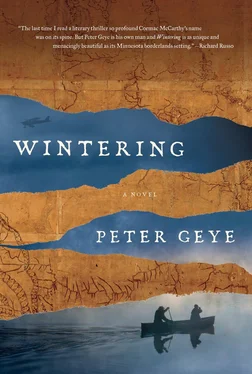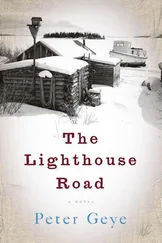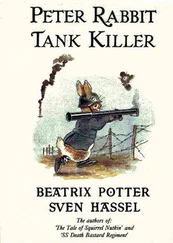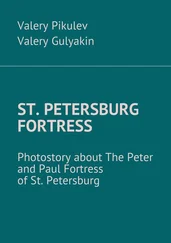The reason, Harry had told him, was that since the “voyageurs of yore” didn’t have the benefit of being towed up to the public access, neither should he and Gus. This notion sounded noble to Gus, and of course it was in the spirit of their adventure. But clambering on hands and knees to tow his canoe like some blind and stubborn horse, he was unable to check himself. Gus said, “This water is freezing.”
“I suppose we’ll run into our share of cold water between now and then,” Harry said, still staring down the length of his canoe.
“I thought this was a river,” Gus said, rolling now.
Harry got up on one knee, cupped his hand into the water, and brought it up to his mouth. “Gus, bud, there’s gonna be stretches that’re tougher than others. We’re gonna get wet and we’re gonna get cold. I’ll save you the trouble of discovery on those accounts. Let’s not piss in our soup, eh?”
Gus didn’t say anything, only pulled his canoe past his father and tunneled farther up the river.
—
“You have to wonder why we were there,” Gus said that November morning he got to talking. “Not just on that stretch of river, but heading into the wilderness beyond. It was so incredibly reckless. To leave at that time of year, for starters. With our provisions? With his miscarriage of a plan? My God.” He paused. “And of course I should’ve been in college. Should have been running to college. But I didn’t even think of it. Can you imagine that? What mess of bent and secret lives was leading us into this? How much anger and grief?”
“Folks always chase their sadness around. Into the woods. Up to the attic. Out onto the ice.”
Gus closed his eyes. “I guess they do.”
“You’re chasing yours.”
“Maybe,” he said. “Or maybe it’s chasing me.”
“Could be.”
“But why was I being petulant three days in? Had he overestimated me? Was I still just a kid? A little boy?” He moved his head like he was nodding yes and shaking no at the same time. “Or were we just in over our heads? Who can say? I only know that when the trees above me lifted and I got off my knees and shook like a wet dog, Burnt Wood Lake opened up right before me. I looked back at my father, still a hundred yards behind, and do you know what I felt?”
I looked at him, waiting.
“Ready to keep going. If I’d felt otherwise, we might’ve stopped then and there. We might have avoided everything. But I didn’t want to. I took a couple steps forward into the river’s earliest, feeble currents and mistook their weakness for my strength. When my father hauled up next to me he said nothing, only pointed up the lakeshore. There, standing among the duckweeds and watermeal, in water up to its belly, its dewlap dripping, its huge antlers lit up, was a moose. He was beautiful. And furious, I could tell.
“I said, ‘Why isn’t he running away? He ought to fear us. I could shoot him right now. He should know that.’
“My father, he only said, ‘Yes, I suppose he should.’ ” He mimicked Harry’s voice — a perfect imitation — and then fell silent for a moment. “Good Christ, Berit. The things I didn’t know.”
I KNOW WHAT some of the folks around here used to think, that for years the worst of them labeled me a boondagger because I could lift a fifty-pound sack of U.S. mail and had no husband. The fact is, there’s only been one man in all my years and I simply chose to wait for him. Through the end of my first winter here, then through what seemed an eternity.
Harry was the first person in Gunflint to show me a special gentleness. This was one warm summer morning after I’d strolled the shoreline, plucking flowers from the cracks in the bedrock. He’d been out at his nets, just a sixteen-year-old boy already making a living for himself. He was tying his boat to a cleat on the Lighthouse Road. “You got a fistful of carnivorous flowers there, Miss Lovig,” he said.
“Beg your pardon?” I said, surprised to hear his voice at all. More surprised to hear him saying my name.
He finished his knot and stood and offered his hand. “I’m Harry Eide,” he said. We shook hands and he continued, “Butterworts.” He nodded at the flowers in my hand. “That’s what you’ve got there. You’d have to walk a long way to find them anywhere else.”
I looked down at the purple flowers, then up at his fresh and boyish face. He ought to have been smiling. Later he would tell me he hadn’t spoken in months. Since February. Which seemed hard to believe then and still does, though I never — not once — had reason to doubt anything he ever said.
“What do you mean by carnivorous?” I asked him.
“They eat bugs. Honest to God.”
“How do you know that?”
“My old man taught me.”
“How do you know my name?”
“I guess everyone knows that by now.”
“My given name’s Berit,” I said.
He smiled, or, rather, half-smiled, the right side of his mouth curling up, his right eye squinting. “Berit Lovig. Right. It’s nice to meet you. Get those flowers in a vase.” He took a step to leave, then paused and said, “Butterworts. They only grow here. This kind of butterwort, leastways. Here along the water.” He paused a second more, looked as though he was about to say something, but then went up the Lighthouse Road toward the Traveler’s Hotel, where he took his lunch each day. Years later he would tell me how hard it had been to leave without saying more. Without saying thanks. Without asking me to join him for lunch. But he didn’t do any of those things, and those few minutes on the Lighthouse Road would be our only proper conversation for more than twenty years. I knew from that moment, though, that he was my man. I knew I’d wait for him however long I had to. And I did.
Which is not to say that others didn’t come calling. Some did. Charlie Aas, for example. But he was rotten from the word go, and rottener still with each day of his life.
By the time he was elected mayor in 1960 he presided over this town like a drunken lord. Through his strong-arming and sleight of hand he’d hidden his past, one that included charges of poaching and animal cruelty, both beaten, and a short stint in the juvenile correction facility in Duluth for terrorizing that autistic Bargaard child. No doubt there were other transgressions, large and small. I can say that because I experienced Charlie’s thuggery myself, and no one but Rebekah Grimm and I ever knew about it.
By 1960 he was known for his mink coat and penny loafers in a town where every other man — even Mr. Nelson, the music teacher at Arrowhead High — wore work boots. Charlie was educated, his degree from the University of Minnesota one of only three or four in Gunflint back then. He was council president at Immanuel Lutheran. A real-estate baron. A bush pilot. A father of four, a daughter and three sons. He was respected because he was feared. Corrupter. Corrupted. Embezzler. Womanizer. Most folks knew all this. Or at least some of it.
But more than anything — and this is why he got away with so much — Charlie was third-generation. His grandfather put a fish house on the harbor shore in 1891. His father, Marcus, used to tussle with Harry’s own father for whiskey dollars during Prohibition. All of which is to say that he had pedigree in these parts, crazy as that sounds, and despite his failings. Nothing has ever meant more to people up here than bloodlines.
Charlie parlayed his into public office. Being mayor around here never meant much before Charlie, but he was determined to change that. Partnering with the mining and lumber companies, he made a fortune just for saying we ought to open the borderlands, not protect them. As Harry put it, Charlie’s goal was to pillage the wilderness and get rich from the wreckage. Harry’s hundred acres along the Burnt Wood River were in the wrong spot. That was part of their problem. But the larger impediment was Harry’s integrity and his own clout with the townsfolk.
Читать дальше












